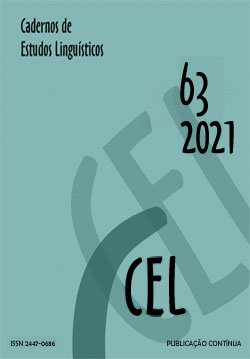Abstract
Within the framework of a uniform theory of the so-called se constructions in Spanish, I propose to explain a control ban that has received almost no attention in the previous bibliography. Specifically, as long as a subject control sentence has an impersonal SE as controller, the subordinate infinitive clause cannot contain any other instance of the clitic SE, other than the so-called spurious SE. The source of this restriction follows, as I will argue, from a legibility problem at LF produced, specifically, by a failed attempt to apply Agree between PRO and the embedded SE, which, as we shall see, acts as a probe for A-movement. If the explanation that I offer is correct, it also follows a series of theoretical conclusions that directly affect the way in which we must conceive of the design of Agree in the syntax and its effect at the LF interface. In particular, the system tolerates certain Agree failures (Preminger 2014) as long as it does not affect legibility in the semantics. Indeed, the theory of SE constructions that I assume here derives the distinction between paradigmatic and non-paradigmatic SE as the result of successful or unsuccessful Agree applications, respectively. The limit of this tolerance to failed applications of Agree must be found in the type of semantic object that can be deduced at LF. This limit is illustrated with the aforementioned restriction in control and impersonal SE contexts that motivates the present study.
References
BOECKX, Cedric, Norbert Hornstein and Jairo Nunes. 2010. Control as movement. Cambridge: Cambridge University Press.
CHIERCHIA, Gennaro. 2004. A semantics for unaccusatives and its syntactic consequences. In A. Alexiadou, E. Anagnostopoulou and M. Everaert (Eds.), The unaccusativity puzzle: Explorations of the syntax-lexicon interface, 22-59. Oxford: Oxford University Press.
CHOMSKY, Noam. 1981. Lectures on government and binding. Dordrecht: Foris.
CHOMSKY, Noam. 1995. The minimalist program. Cambridge, Mass.: MIT press.
CHOMSKY, Noam. 2000. Minimalist inquiries: The framework. In R. Martin, D. Michaels, and J. Uriagereka (eds.), Step by step: Essays on minimalist syntax in honor of Howard Lasnik, 89-156. Cambridge, Mass.: MIT Press.
CHOMSKY, Noam. 2001. Derivation by phase. In M. Kenstowicz (ed.), Ken Hale: A life in language, 1-52. Cambridge, Mass.: MIT Press.
CINQUE, Guglielmo. 1988. On si constructions and the theory of arb. Linguistic Inquiry 19: 521-581.
DOBROVIE-SORIN, Carmen. 1998. Impersonal se constructions in Romance and the passivization of unergatives. Linguistic Inquiry 29(3): 399-437.
HEIM, Irene. 1982. The semantics of definite and indefinite noun phrases. Phd diss., University of Massachusetts at Amherst.
HEIM, Irene and KRATZER, Angelika. 1998. Semantics in Generative Grammar. Malden, Mass.: Blackwell.
HORNSTEIN, Norbert. 1999. Movement and control. Linguistic Inquiry 30: 69-96.
LANDAU, Idan. 2000. Elements of control: Structure and meaning in infinitival constructions. Dordrecht: Kluwer.
LANDAU, Idan. 2004. The scale of finiteness and the calculus of control. Natural Language and Linguistic Theory 22: 811-877.
MACDONALD, Jonathan E. and VÁZQUEZ-LOZARES, Almike. 2020a. On (un)grammatical sequences of ses in Spanish. To appear in Selected Proceedings of LSRL 48. Amsterdam: John Benjamins.
MACDONALD, Jonathan E. and VÁZQUEZ-LOZARES, Almike. 2020b. Spanish impersonal se in control infinitivals and the ungrammaticality of se se sequences. To appear in East and West of The Pentacrest: Linguistic Studies in Honor of Paula Kempchinsky.
MARTINS, Ana María and NUNES, Jairo. 2017. Identity avoidance with reflexive clitics in European Portuguese and the theory of control. Linguistic Inquiry 48:4. 627-649.
MENDIKOETXEA, Amaya. 2008. Clitic impersonal constructions in Romance: Syntactic features and semantic interpretation”. In A, Siewierska (Ed.), Impersonal constructions in grammatical theory. Special Issue of the Transactions of the Philological Society, 106(2): 290-336.
ORMAZABAL, Javier and ROMERO, Juan. 2019. The formal properties of non-paradigmatic se. Borealis: An International Journal of Hispanic Linguistics 8(1): 55-84.
ORMAZABAL, Javier and ROMERO, Juan. 2020. Deconstructing se constructions: number agreement and post-syntactic variation. Ms., Universidad del País Vasco y Universidad de Extremadura.
PESETSKY, David and TORREGO, Esther. 2001. T-to-C movement: Causes and consequences. In Michael Kenstowicz (ed.), Ken Hale: A Life in Language, 355-426 Cambridge, Mass.: MIT press.
POSTAL, Paul and PULLUM, Geoffrey. 1988. Expletive noun phrases in subcategorized positions. Linguistic Inquiry 19(4): 635-670.
PREMINGER, Omer. 2014. Agreement and its failures. Cambridge, Mass.: MIT press.
PUJALTE, Mercedes. 2012. Argumentos (no) agregados. Indagaciones sobre la morfosintaxis de la introducción de argumentos en español. Phd diss., University of Buenos Aires.
PUJALTE, Mercedes and SAAB, Andrés. 2012. Syncretism as PF-repair: The case of se-insertion in Spanish. In María Cristina Cuervo and Yves Roberge (Eds.) The end of argument structure?, Syntax and Semantics 38, 229-260. Bingley: Emerald.
PUJALTE, Mercedes and SAAB, Andrés. 2014. Sobre la interacción entre caso y concordancia en impersonales y pasivas con se. In Ángela Di Tullio (Ed.) Variaciones gramaticales del español rioplatense. Traslaciones. Revista latinoamericana de lectura y escritura 1(1): 30-55.
PYLKKÄNEN, Liina. 2008. Introducing arguments. Cambridge, Mass.: MIT press.
SAAB, Andrés. 2002. Asignación de caso nominativo en construcciones con se impersonal. In Actas del IX Congreso de la Sociedad Argentina de Lingüística (CD-ROM). ISBN 987-9280-91-1.
SAAB, Andrés. 2014. Syntax or nothing. Some theoretical and empirical remarks on implicit arguments. Borealis: An International Journal of Hispanic Linguistics 3(2): 125-183.
SAAB, Andrés. 2015. On long-distance theta-role assignment. Lingua 160: 91-126.
SAAB, Andrés. 2020. Deconstructing Voice. The syntax and semantics of u-syncretism in Spanish. Glossa: a journal of general linguistics 5(1): 127. 1-50. DOI: https://doi.org/10.5334/gjgl.704.
SAAB, Andrés. 2021. From pronouns to probes. A theory for a subset of Spanish clitics. Ms., IIF-SADAF-CONICET.

This work is licensed under a Creative Commons Attribution-NonCommercial 4.0 International License.
Copyright (c) 2021 Cadernos de Estudos Linguísticos


